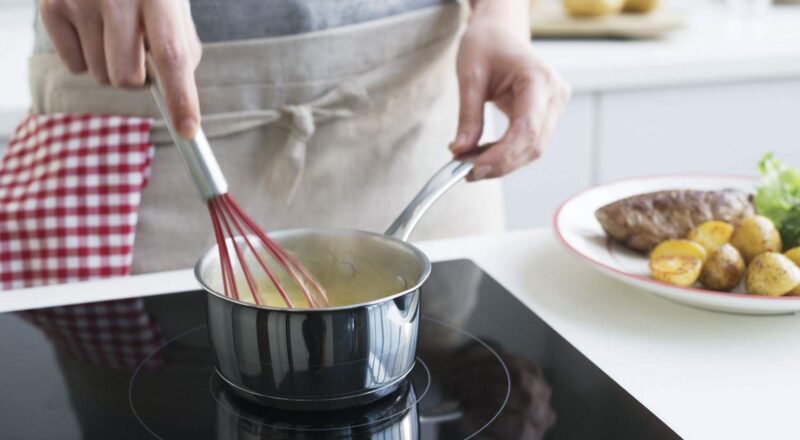Eggs are a staple food for millions, providing vital nutrients and a culinary versatility that few ingredients can match. For kitchen professionals and home cooks alike, knowing how to boil eggs in a saucepan is a must-have skill that pays dividends in countless recipes. Whether you’re preparing a classic breakfast, whipping up deviled eggs, or using them in salads, this timeless technique is foundational for any kitchen enthusiast.
In this detailed guide, we will not only walk you through the step-by-step process of how to boil eggs in a saucepan, but we’ll also give you tips on achieving perfection every time. Its a tremendous way to elevate your cooking expertise and delight your taste buds. Lets dive into it!

Why Boiling Eggs in a Saucepan is the Best Method
The old-fashioned technique of boiling eggs in a saucepan is cherished for its simplicity and effectiveness. Using a saucepan offers consistency in cooking time, heat distribution, and control over the process. Plus, its a method that kitchen professionals approve for preparing eggs of any donenesssoft, medium, or hard.
In case youre interested in learning more about how versatile saucepans are, check out this purpose of a saucepan article.
Equipment Needed to Boil Eggs in a Saucepan
The Right Saucepan
Choosing the right saucepan is crucial. Ideally, you want a saucepan that is medium-sized to allow eggs to sit in a single layer. If you’re unsure about saucepan sizing, this helpful guide on saucepan sizes might be of interest.
Other Essentials
- Fresh eggs
- Clean tap water
- Ice cubes or cold water for cooling
- Slotted spoon for transferring eggs
Step-by-Step Guide for Boiling Eggs in a Saucepan
Step 1: Place Eggs in the Saucepan
Begin by placing the eggs in a single layer at the bottom of the saucepan. Overcrowding can lead to cracked shells, so ensure theres enough space for each egg.
Step 2: Add Water
Fill the saucepan with cold tap water until the eggs are covered by about 1 inch. Avoid boiling with hot water initially, as it can cause uneven cooking.
Step 3: Heat the Water
Turn on the stove and set it to medium-high heat. Allow the water to come to a full rolling boil. Stay nearby and monitor the process carefully.
Step 4: Set a Timer
Once the water reaches a rolling boil, reduce the heat to low, and set a timer based on your preferred doneness:
- Soft-boiled: 45 minutes
- Medium-boiled: 78 minutes
- Hard-boiled: 1012 minutes
Step 5: Cool the Eggs
Once the timer goes off, transfer the eggs immediately into a bowl of ice water using a slotted spoon. This halts the cooking process and makes peeling easier.
Step 6: Peel and Enjoy
After about 10 minutes in the ice water, gently tap the eggs against a hard surface, roll them to loosen the shell, and peel. Rinse under tap water to remove any shell remnants.
Common Questions About Boiling Eggs
Why Do Eggs Crack While Boiling?
Cracking often happens due to rapid changes in temperature. To prevent this, start with cold water and avoid overcrowding the saucepan.
Should I Use Fresh or Old Eggs?
Fresh eggs are harder to peel but have a richer taste. If peeling ease is your priority, opt for slightly older eggs.
How Long Can Boiled Eggs Be Stored?
Boiled eggs can be stored in the refrigerator for up to a week. Make sure to keep them in a covered container.
More Help with Cooking Equipment
If your saucepan has seen better days, you might be wondering how to care for it. This guide on cleaning burnt saucepans will restore it to its former glory.
Pro Tips for Perfect Boiling
Here are some additional tips for making the perfect boiled eggs:
- Add a teaspoon of vinegar or salt to the water to prevent cracking.
- Prick a tiny hole at the egg’s rounded end with a pin to let out air pressure.
- Use fresh, filtered water to avoid unwanted flavors.
Conclusion
Mastering how to boil eggs in a saucepan is not only practical but also rewarding. By following the steps and tips outlined above, youre setting yourself up for success in countless dishes. For more on cooking techniques and best kitchen practices, check out this blog from Dalstrong.

FAQ
How many eggs can I boil at once?
It depends on the size of your saucepan, but typically, you can boil 68 eggs in a standard medium-sized saucepan.
Can I reuse the water after boiling eggs?
Yes, the water can be reused for cooking pasta, steaming vegetables, or any other appropriate culinary purpose.
Is it safe to eat eggs with cracked shells?
As long as the egg was boiled thoroughly, it is safe to eat. However, ensure there were no contaminants in the water.
This article contains affiliate links. We may earn a commission at no extra cost to you.

